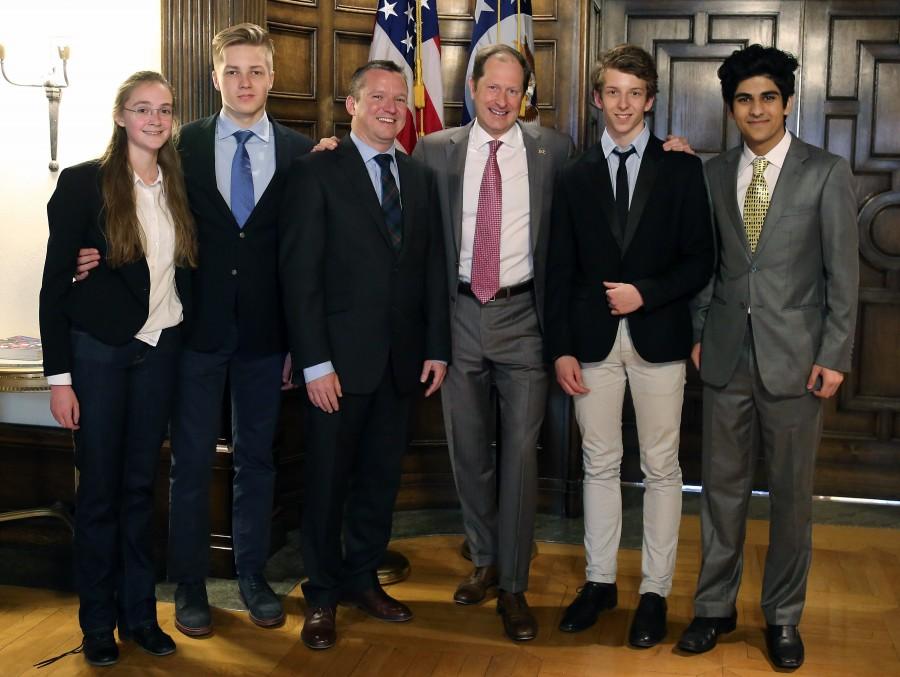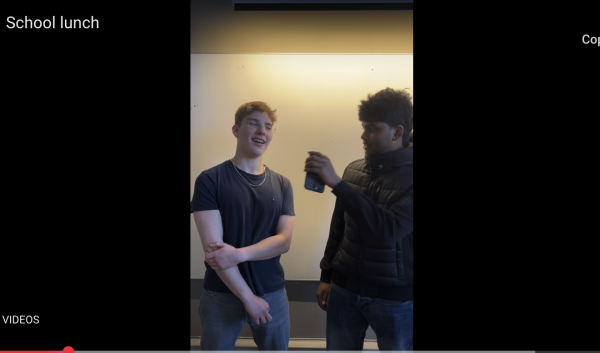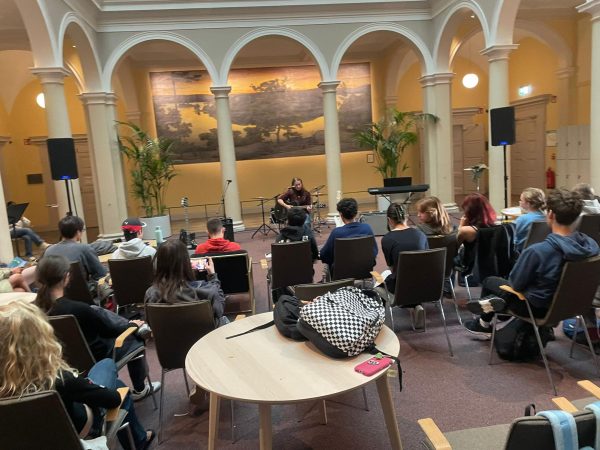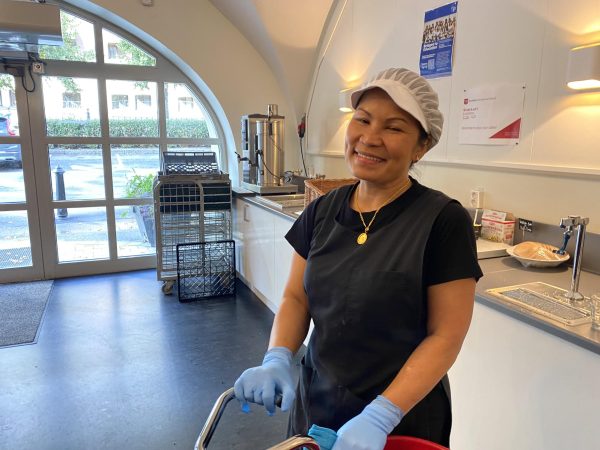‘Entrepreneurship and Innovation in Sweden and the Global Economy’
On Friday, the 8th of May, the Economics teacher Mr. Boswell, along with four of his students, Andrey, Sharav, Yarrid and myself attended a discussion panel on ‘Entrepreneurship and Innovation in Sweden and the Global Economy,’ hosted by the Ambassador of the United States of America, Mark Brzezinski, and his wife Mrs. Natalia Brzezinski in their home.
On Friday, we all dressed up in formal business attire and walked to the ambassador’s house. Whilst we were waiting outside to be let in, we met one of the panel, a former SIS student who graduated in 2008, Caroline Walerud, who is now the founder and CEO of Volumental, and studied at Cambridge University. After showing our ID’s and passports to the guard, we were led inside and had our picture taken with the ambassador, in front of a doorway that had the flags set up. Then we were invited into the room where the discussion was to be held, and we had a chance to look around at the interesting, modern artwork that, Mr. Boswell informed us, moves around the embassy homes. In the room next to it, there was a large bookcase where books about the USA and by American authors were displayed, as well as some beautiful leather bound hardbacks. There were also amusing comics on the walls, about the world economy. At 16:05, as scheduled, we were all asked to sit down.
The featured panelists were: Anna Ryott, the CEO of Swedfund, a company which specialises in complex, high-risk investment environments; Caroline Walerud, the founder and CEO of Volumental, a 3D scanning company; Nami Zarringhalam, the Co-Founder and Chief Strategy Officer of True Caller, a company that is revolutionising the phone book; and Ash Pournouri, AVICII’s Manager as well as Founder and CEO of At Night Management. The event happened in collaboration with the University of Virginia’s Darden School of Business Global Business Experience, and the Stockholm School of Economics (Handelshögskolan), which meant that despite being the youngest there, we got mistaken for university students.
The actual discussion was very interesting, with each panelist bringing their unique perspective to the table. Although it would be impossible to fit everything that was said into an article, I shall attempt to summarise the key points everyone made below.
Anna Ryott focused mainly on the Sustainable Development Goal of eradicating poverty, as that is what her company is all about. Her final piece of advice was to use the opportunities we get to fight poverty, as it would make you successful and give you peace of mind. As a woman, she was of-course asked to comment on gender equality, and her advice to girls was to choose their employer, as many are trying to empower women. She also said she found it strange that despite being equal, there are still only 1-2% of CEOs that are women, especially since competence is clearly not the problem. According to Ms. Ryott, what girls need is more courage, and greater networking in general. In their work in Africa, Swedfund is doing everything in their power to empower women, and finds education to be the answer, as the percentage of women that get higher education there is so much lower than the number of men.
Ash Pournouri mentioned how, since Sweden is so small, innovators and musicians immediately plan to sell to the world, as opposed to staying in Sweden. He also talked about how record labels need to reinvent themselves lest they become completely obsolete, because the way they used to run things no longer works. They need to show that they are on the side of the consumer and fighting the internet is not the way to go about it. Record labels need to understand that music is a lot freer now, and that it is much easier for a musician to reach a larger audience today than before, due to the internet and social media. His final piece of advice was to aim high and have a vision, and never underestimate the value of hard work, as he has never met a CEO that does not work hard.
Nami Zarringhalam thought that what most encouraged innovation was, as Mr. Pournouri said, the global ideas, but also that Sweden has one of the world’s fastest and most reliable networks in the world: the majority of people have smart phones, and everybody is connected. He realised that everything on phones had been re-innovated except the apps themselves and the phone book, so his company is trying to do for the phone book, or the contact app on a smart phone, what Google did for the internet. His company makes it easier to sort and find your contacts, using a directory, as well as using caller ID to make more informed decisions when picking up calls. His company has very Swedish values, that everyone has taken to heart, where you remove your ego completely and work as a team. The final piece of advice that he left us with was to surround yourself with people that are better than you, and to be prepared to listen, think about and learn from what they have to say.
Caroline Walerud thought that the most powerful thing that inspired so much innovation in Sweden was that Sweden has no student debts, so people are free to pursue their dreams straight out of school, rather than getting bogged down with a profitable job to pay for their education, as is the case in many other countries. As a woman working in technology and entrepreneurship, both fields that have low female participation, she said that it was difficult to get the best ideas forward if half of the population wasn’t participating. She also said that the team she works with is very diverse, with people from many different countries and backgrounds, and that it was easier to get more women to work with them as she was one. Ms. Walerud also said that it wasn’t bad to be a women and be different, and she has not felt much bias against her from investors, only from some other entrepreneurs who have occasionally been sexist. She encourages everybody to be passionate and confident, and to avoid hierarchy in a company, as well as focus on a vision and work as a team. Her final advice was that communication is very important.
After the panel discussion was over we went into the next room, where a buffet of fancy bitesize pieces of food were served and we had the chance to mingle. Then we signed the guest book and left. The discussion panel was a great experience during which we learnt a lot about entrepreneurship and innovation in Sweden.









